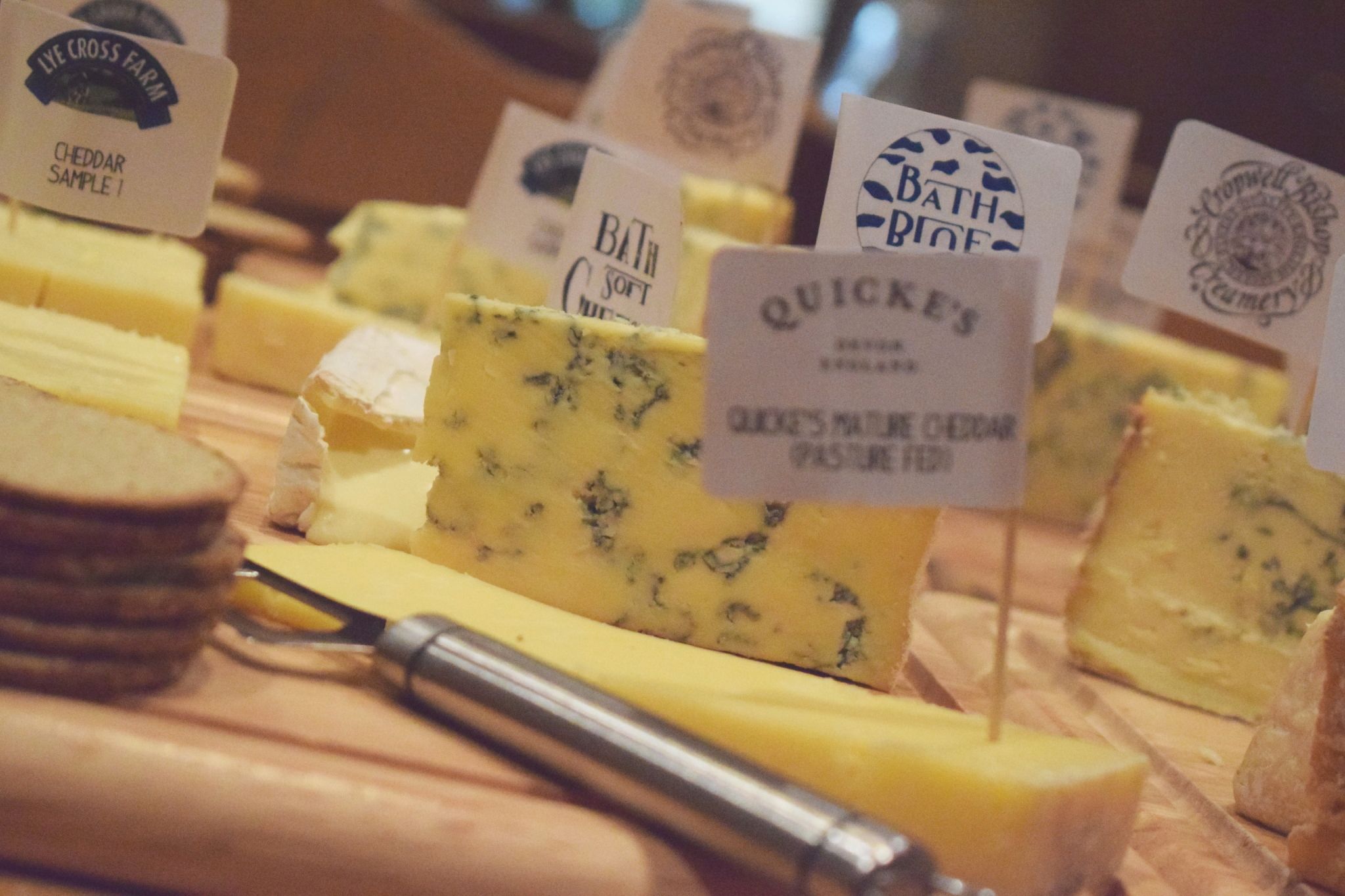
Just when you thought you’d seen the last of the cheeseboards for another year, Innovative Farmers hosted the Grate Cheese Debate – a fringe event bringing together farmers and others attending the Oxford Farming Conference and Oxford Real Farming Conference.
Over huge slabs of cheeses and glasses of red wine, the Grate Cheese Debate asked: 'How do different farming systems affect the taste of cheese and what do they offer the future of dairying?'
The panel and audience discussed the influence and importance of the breed of dairy cows for effective grazing systems; the influence of cow diets on the flavour of cheeses; and the viability of grazing cattle in a post-Brexit economy that could limit access to lower-cost labour.
Cheese makers were told they need to invest in marketing if they want to continue charging a premium for top quality products made using milk from cows grazed outdoors on pasture.
Hosted by Charlotte Smith, presenter of BBC Radio 4’s Faming Today programme, the Grate Cheese debate started with an introduction to four different dairy farmers and cheese producers from different disciplines.
Hugh Padfield, 4th generation dairy farmer and owner of the Bath Soft Cheese Company; Mary Quicke of Quickes, an artisan cheddar producer who uses hybrid cattle to achieve the best taste; Robin Skailes, owner of Cropwell Bishop Creamery and inventor of a new type of cheese, Beauvale; and Peter Alvis from Lye Cross Farm who produces cheeses from both organic and conventional milk.
'Different dimensions, softer fat'
“The difference in taste between our organic and conventional cheeses is the clover the organic cows graze on – it adds a different dimension and a softer fat. There is more omega 3 fats in organic milk and that gives the cheese a softer texture. If you eat both regularly and become a bit of an expert then you’ll start to notice the difference”said Robin Skailes of Cropwell Bishop Creamery.
Mary Quicke, of Quickes, said: “Farmers tend to think that their own system is the only system that will make money, but it’s excellent management that makes the difference in profitability. We, in the dairy industry, have to get better at telling the story and letting people know that our products are fabulous value.”
The event was hosted by Innovative Farmers, which is part of the Duchy Future Farming programme and funded by the Prince of Wales’ Charitable Trust.
Innovative Farmers is a network where farmers can come together to test new approaches in practical ‘field labs’, getting funding and research support on their terms.
